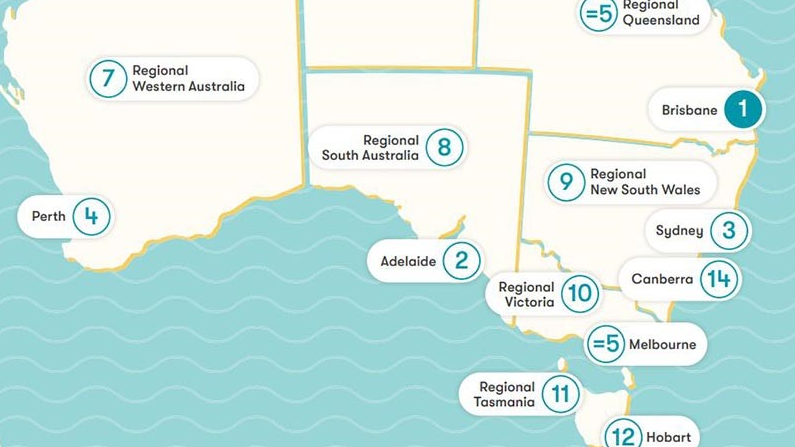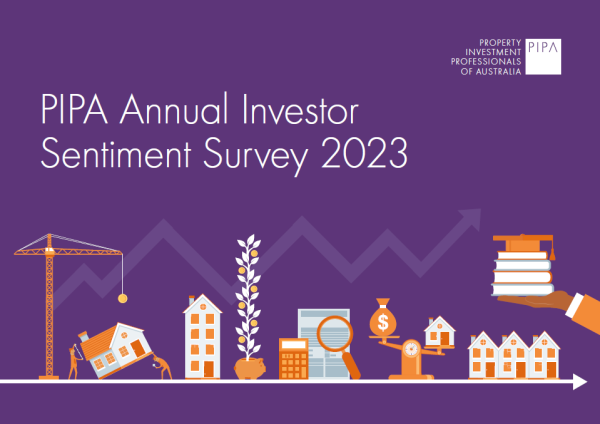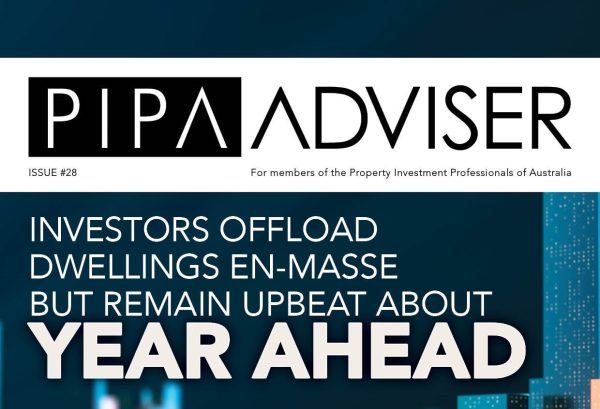Insights on how expert (QPIA) advisors select the right builder
Jul 2020Karen Millers
Categories
Location ReportsMedia releasesNational market updatesPersonal advisersPIPA AdviserPIPA Annual Investor Sentiment SurveysPIPA Member ProfilesPIPA video updatesPIPA webinarsPodcastsProperty advisersProperty newsLatest Articles
‘More chance of winning lotto’ than housing targets being met
PIPA Member Profile | Amanda Turner, Opulence Property
One of the best decisions you’ll make as an investor is relying on the specialist advice of experienced, independent qualified professionals. Not only does it help you sort through the white noise and make smart choices, but it saves time, stress and money.
And while you might already be able to guess a few areas where experts excel – accounting, legal, financial advice – there’s one facet of the investment process where people go it alone at their peril.
Selecting a builder!
While it will seem like a simple case of vetting, most just don’t understand what to look for when choosing a builder. Unfortunately, the consequences of picking the wrong contractor can be extremely stressful and a dire risk to your financial security.
That’s why I wanted to get some tips from Nick Menz – the acquisitions manager at ASPIRE Property Advisor Network. His day-to-day role has him assessing, screening and ultimately selecting builders from around Australia to construct investment properties for clients.
Here’s Nick’s guiding advice on making sure you get this important decision spot on.
1. Ask the right questions
Nick says when meeting with your builder the first time, ask them plenty of question, but make sure they’re the right ones.
There will be the mechanics of timing, cost and experience of course, but some more general queries will help you with further due diligence.
“Ask them what they do different, what they think they do better and what sets them apart as a builder,” Nick said.
“Also, ask them how many jobs they do a year.”
While these seem like very vanilla questions, he said their importance becomes clear as you do further research.
2. Check-in with authorities
According to Nick, builder background checks should start with your state’s licencing authority.
He said Queensland, in particular, has a comprehensive system of reporting and accountability that’s hugely useful. In that state, you can see information including the builder’s track record of potential complaints or actions, along with run-of-the-mill info like how many jobs they’ve done.
Nick said this last piece of intel is a great method for confirming their trustworthiness.
“When I ask builders how many jobs they’ve done in a year, it’s amazing how many will overstate their job numbers. I can then check at the licencing authority to see the actual number because I want to see if I’m getting an honest answer to my questions from the builder.
“If they say they’re building 400 homes a year, and then you check and they’re doing 80 a year, that’s not a great sign.”
Nick said other numbers on things like Orders to Rectify will also be recorded by the authority.
“This sort of due diligence helps paint the complete picture of the builder’s character.”
3. Site visit their projects
You must inspect their projects, according to Nick.
“But my big tip here is don’t look at a display home in isolation. By definition, it will always be completed to an impeccable standard to dazzle the masses.
“Instead, I want to look at a project that’s being completed for client who will have a home of similar design to the one I’m considering.
“Also – looking at a partially-built house means I can view normally unseen elements like foundations and framework. I can also see how they keep the site – is it secure, tidy and orderly, or is it in disarray? How are they storing onsite material? Are they exposed to the elements or are they secure?”
4. Talk to past clients
“I’ll also, where possible, engage with past clients and see what they can tell me about the experience.”
Nick said this is a useful tool, but you must maintain healthy scepticism if the builder provides you with a contact list.
“A builder is obviously not going to put you in touch with a client who’s had a bad experience. I will occasionally door-knock and cold-call past clients so I can have a private discussion and learn a thing or two.”
And what is Nick looking for when chatting with past clients?
“A builder with good communication, drive and common purpose where their successes are tied to client satisfaction.
“Good communication means it’s easy for you to address concerns or queries with the builder so solutions can be found early – just make sure you are getting responses from them. You might find a builder who’s the greatest listener in the world, but if he doesn’t fix the problem or avoids it altogether, then he’s no good.
“For example, one of my favourite builders is an absolute grumpy bugger… but you know exactly what he’s thinking – you’ll never die wondering. He’s also fair and passionate about getting the work done right and to the highest quality. He’ll do the right thing by you despite his occasional ‘moodiness.’”
5. Professional networks
While this can be tough to source for everyday mum-and-dad investors, Nick said the sharing of intel among his professional networks is invaluable.
“I have a handful of people who are industry insiders that I trust and we share information about how certain builders operate. From back office to on-site – I’m looking for builders who are on top of everything.”
“For example, we use Handovers.com. to do final inspections on homes. They inspect thousands of properties each year. My local contacts at Handovers will know most of the builders operating in a suburb or estate and will have seen their finished product. They’re a great source on whether the builder you’re considering in completing quality work.”
6. Seek value over price
Nick said value is critical, but the price is not.
“Cheap builders who cut quality aren’t worth the risk. Conversely, expensive builders don’t always deliver dollar-equivalent finishes and results.”
He said finding the balance is a challenge and takes experience, but you want to align with a builder who’ll delivery the maximum bang for every dollar spent.
“I’ll need to understand their list of specs of course, but when I’m inspecting one of their finished homes, I’m looking at what inclusions have been made. For example, brand-name appliances, not generic knock offs, are key.
“This is because, in an investment property, good post-completion maintenance and after-sales service are crucial.
“Also for resale or rental maximisation, good finishes such as quality tiles and carpets have greater appeal to buyers and tenants.”
7. Read the fine print
Nick reads contracts thoroughly, but he’s looking at two sections in particular.
“I’m focussing on ‘Days to build;’ and ‘Liquidated damages’.
“If a builder says they can complete in 16 weeks, but their contract timeframe is 10 months, we have a huge disparity that shows they’re over-committed and have us on the line for an extended period.
“Then with liquidated damages, which is what they’ll payback to the client per day they run overtime, I want that to be substantial enough for them to be motivated towards completion.”
Nick said many builders will try and get away with liquidated damages of $15 per working day, but that’s only $75 a week and won’t cover a client’s mortgage during the waiting period.
“Instead, I’m wanting $50 a workday minimum – or $250 a week – which will cover the majority of the mortgage bill while you’re waiting.”
Buying an investment property is a rewarding experience working together with the right team behind you. Always seek out Qualified professionals and never be SOLD an investment. Always buy with the right investment mindset and unbiased research and data. Connecting with an independent qualified (QPIA®) advisors can be a wise decision to take your first step or next step into property investment.
Nick Menz, ASPIRE Property Advisor Network, 24 July 2020




